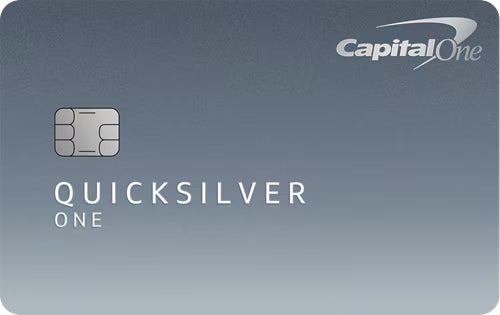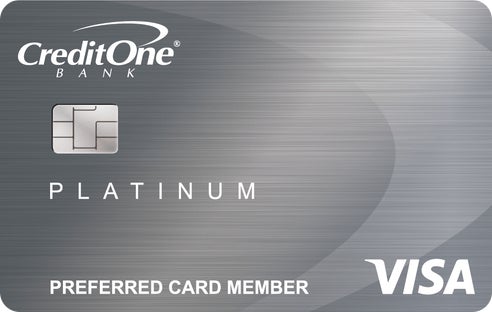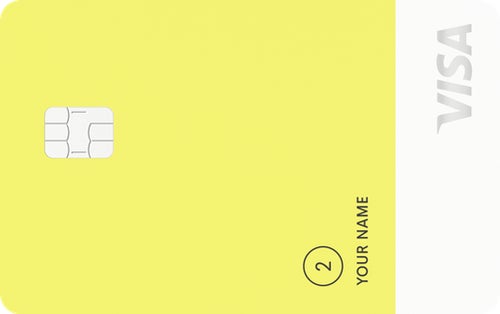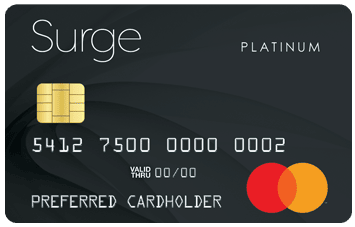| Credit Building Rating: | 1.5 / 5 |
| Cost of Membership | 0.4 |
| Ease of Building Credit | 3.9 |
| APR | 0.4 |
| Features | 2.3 |
In a Nutshell:
The Surge Platinum Mastercard could get you a high credit limit but the card’s inflated fees and APR make it a poor choice for most credit-builders.
Average Cost of Membership Per Year $99 |  |
Security Deposit Required $0 |  |
Initial Credit Limit $300-$1,000 (subject to available credit) |  |
Access To Higher Credit Line? No stated timeline for a credit limit increase |  |
APR 35.90% Fixed |  |
Annual fee See Website |  |
Other Rates and Fees
|  |
The Surge® Platinum Mastercard® offers a few key advantages for credit-builders, including a relatively high starting credit limit and an automatic credit limit increase after you make your first six monthly payments on time.
However, the card carries high fees and a high APR, making it tough to recommend for most credit-builders. This card can be both a costly and risky option for cardholders short on cash.
Unless you can’t afford to tie up money in a deposit, you’ll almost certainly be better off opting for a no- or low-annual-fee secured credit card.
High fees and APR
If you’ve been comparing credit cards for people with bad credit or a limited credit history, it may come as no surprise to learn that the Surge Platinum Mastercard carries its share of fees. High annual or monthly maintenance fees are common among unsecured credit-building cards, and the Surge Platinum Mastercard is no exception.
While the exact cost of carrying the Surge Platinum Mastercard will vary based on your credit history and length of membership, it is likely to far exceed that of the typical secured card. The Discover it® Secured Credit Card and Capital One Platinum Secured Credit Card, for example, both charge no annual fee at all.
The Surge Platinum Mastercard also carries a high ongoing APR, regardless of your credit history. While the card’s rate is on par with that of many unsecured credit-building cards, it’s much higher than the average credit card interest rate and could spell trouble if you wind up needing to carry a balance.
Decent credit limit and chance at automatic credit limit increase
The card offers a starting credit limit of $300 to $1,000, depending on your credit history and financial profile.
While a starting limit of $200 to $300 is common among unsecured cards for people with damaged credit, a $1,000 limit is on the high side. You can also boost your credit limit automatically by making your first six monthly card payments on time. This is a big plus since most cards in this category give no concrete guidelines on how you can get a credit limit increase, and very few offer automatic credit line increases.
This could be a major plus if you’re looking to build credit, as a higher credit limit will make it much easier to keep your credit utilization – the amount of money you’ve borrowed relative to your total available credit – in check.
Despite the relatively high credit limit, you’ll likely be better off putting down a deposit on a lower-cost secured card and setting your own credit limit.
Secured cards typically base your credit limit on the size of your deposit, and a number of high-limit secured cards let you put down $2,000 or more and get a matching limit. Such a high limit could significantly boost your credit-building efforts, as your credit utilization ratio accounts for 30% of your credit score.
See related:What affects your credit score?
Limited perks
The Surge Platinum Mastercard comes with $0 fraud liability, and cardholders can enroll in e-statements to receive a monthly credit score from Experian, but otherwise the card offers next to nothing in the way of cardholder benefits.
The Surge Platinum Mastercard does report monthly to all three national credit bureaus, however. This may not sound particularly impressive – and it should be considered the bare minimum for all credit cards – but some low-end credit-building cards only report to a single bureau.
Approval odds
The Surge Platinum Mastercard is designed for users with no credit history or a subpar credit score, so it should be within reach for most credit-builders. Like most credit cards, however, the Surge Platinum Mastercard requires applicants to have a checking account.
You can also prequalify for the card with only a soft pull of your credit report. This won’t affect your credit score and is not a guarantee of approval, but it should give you some extra peace of mind before you submit a formal application.
See related:What is a ‘soft pull’ credit card?
How does the Surge Platinum Mastercard compare to other credit-building cards?
Though it offers a chance at a relatively high credit limit and the ability to increase your limit with responsible card use, the Surge Platinum Mastercard is less-than-ideal for credit-builders on a budget due to its high fees.
Depending on your credit history, you may qualify for a handful of more affordable unsecured cards, some of which give you a chance to make up their cost with rewards and other benefits. Here are a few of our favorite alternatives:
 |  |  |
Rewards rate
| Rewards rate
| Rewards rate
|
| Credit limit See terms | Credit limit Starting at $300 | Credit limit $300-$10,000 |
| Annual fee $39 | Annual fee $75 for the first year, After that, $99 annually ($8.25 per month) | Annual fee $0 |
Other things to know
| Other things to know
| Other things to know
|
Capital One® QuicksilverOne® Credit Card
Geared more toward cardholders with an average credit score, the Capital One QuicksilverOne card offers unlimited 1.5% cash back on every purchase. While this is not the most impressive cash back rate, it should help to offset the card’s $39 annual fee. You’ll also have a chance at a credit limit increase if you make six consecutive on-time payments.
Credit One Bank® Platinum Visa® for Rebuilding Credit
While the Credit One Bank Platinum Visa for Rebuilding is still not the cheapest option, the card offers good approval odds even with poor credit and comes with a cash back rewards program that can help reduce your total cost of ownership. It’s also an unsecured card, so you won’t have to tie up hundreds in a deposit just to get started.
See related:Credit One vs. Capital One
Petal® 2 “Cash Back, No Fees” Visa® Credit Card
A unique credit-building offering for those with a limited credit history, the Petal 2 card earns cash back with no deposit required and no fees of any kind. You’ll earn 1% back on eligible purchases to start, with this rate increasing to 1.25% after you make six on-time monthly payments and to 1.5% after 12 on-time monthly payments. Additionally, since the issuer considers alternative credit data in its approval decisions, it’s a great option for someone with limited credit but a good income and bill payment history.
Who should get the Surge Platinum Mastercard?
- Cardholders with a limited credit history or lackluster credit score looking to build credit.
- Cardholders who want a chance at a higher-than-average credit limit on an unsecured credit-building card.
- Cardholders who want to avoid putting down a deposit.
How to use the Surge Platinum Mastercard:
- Pay on time and keep your credit utilization low to give yourself the best chance of improving your credit score.
- Pay the card off in full each month to avoid the card’s potentially high APR.
- Make your first six monthly card payments on time to get an automatic credit limit increase.
Is the Surge Platinum Mastercard worth it?
Unless you have no other options, the Surge Platinum Mastercard is unlikely to be your best credit-building option. Due to the high fees and a high APR there could be a better card for people with no credit history or bad credit.
*All information about the Credit One Bank Platinum Visa for Rebuilding Credit card has been collected independently by CreditCards.com. The issuer did not provide the content, nor is it responsible for its accuracy.
All reviews are prepared by CreditCards.com staff. Opinions expressed therein are solely those of the reviewer and have not been reviewed or approved by any advertiser. The information, including card rates and fees, presented in the review is accurate as of the date of the review. Check the data at the top of this page and the bank’s website for the most current information.
Responses to comments in the discussion section below are not provided, reviewed, approved, endorsed or commissioned by our financial partners. It is not our partner’s responsibility to ensure all posts or questions are answered.
Partner Offer
